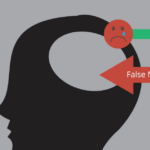Barristers Propose Injecting Murderers with ‘Truth Serum’ to Locate Bodies

Two high profile barristers have caused controversy this week, suggesting that convicted murderers who refuse to tell authorities the location of the remains of their victims, should be forcibly injected with what is commonly known as ‘truth serum’.
Former New South Wales crown prosecutor Margaret Cunneen SC and Victorian barrister Sharon Kermath are calling for state governments across Australia to consider a trial of the concept, but critics have expressed concerns regarding the efficacy, ethics and morality of the proposal.
Some of the questions raised include, what if the person was wrongly convicted as so many people are?
How can it be morally defensible for a society to forcibly ply a person with drugs if they have already received their sentence?
And how can this be justifiable in circumstances where research has found the drugs to be ineffective?
What is ‘truth serum’
Truth serum is the common name given to a range of psychoactive drugs which are used in an attempt to elicit information from subjects, whether consensually or forcibly.
These drugs include ethanol, scopolamine, 3-quinuclidinyl benzilate, midazolam, flunitrazepam, sodium thiopental, amobarbital, or a combination of them.
Subjects are questioned after the drugs are applied and proponents argue this can lead to reliable information being elicited.
However, those against the use of the technique question the efficacy of this in terms of gaining reliable information, pointing to research which suggests that subjects are susceptible to suggestion and can reconstruct false recollections.
Critics also assert that forcibly applying these concoctions to those who have already been sentenced for their crimes is unethical and inhumane.
‘No Body, no parole’ laws are ineffective
In October last year, New South Wales joined Victoria, Queensland, South Australia, Western Australia and the Northern Territory, passing ‘no body, no parole’ laws which mean that convicted murderers are not eligible for parole if they refuse to tell authorities the location of a victim’s remains.
New South Wales laws were passed after Chris Dawson was convicted of murdering his wife Lynette whose disappeared in 1982, and whose body has never been found.
The laws are designed to help families and friends of victims grieve properly, and get closure, but there has been no evidence to suggest the laws have been effective.
In New South Wales, the penalty for murder is life imprisonment, with a standard non-parole period of 20 years, and it has been argued that the ‘no body, no parole’ laws offer little incentive for murderers to co-operate as to the whereabouts of a victim’s remains, but can cause further injustice to those who have been wrongly convicted.
Are forced injections the answer?
There are studies which suggest applying truth serums can have positive results in terms of eliciting forgotten or withheld information.
But as stated, other research suggests that those under the influence of the drugs may be more suggestible and prone to fabricating false memories.
Truth serums have been used in the justice system in India and the US in relatively recent times.
On the historic public record, in the early 1960s truth serum was proposed in the US as a way to avoid wrongful convictions, but the reliability of various drugs in terms of their ‘lie detecting’ ability eventually came into question.
In that country in 1963, the United States Supreme Court ruled in Townsend v. Sain that confessions produced as a result of the ingestion of truth serum were “unconstitutionally coerced” and therefore inadmissible.
Human rights
It is often said that people are sent to prison as punishment, not to be punished. In other words, the punishment is the loss of liberty.
Inmates have rights, and forcibly injecting them with drugs is a slippery slope to further erosion of those rights, while barbarising society as a whole.
Indeed, the idea would be shunned by many countries who regard it as important to protect the dignity and humanity of inmates, regardless of what they have been convicted of.
Margaret Cunneen argues the move would have protections, including a safeguard against any information derived could only be used to find bodies, and not to further prosecute them.
Legal protections against self-incrimination
In New South Wales, as in all jurisdictions across Australia, there are protections under the law against self-incrimination.
This protection is contained in section 128 of the Evidence Act 1995 (NSW) and applies when a witness objects to giving particular evidence on the grounds that the evidence may tend to prove that they have committed an offence under Australian law or an offence against a law of a foreign country or an offence which will make them liable for a civil penalty.
The idea of truth serum certainly presents an interesting discussion and it must of course be balanced with the rights of victim’s loved ones, but it must also be remembered that a fundamental tenet of the justice system is the right to remain silent (section 89 of the Evidence Act 1995 (NSW) no matter how much anguish this may cause others, because it protects us all.







